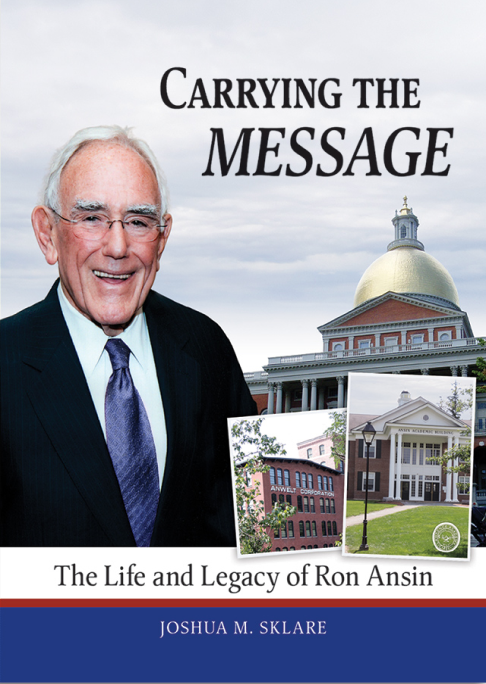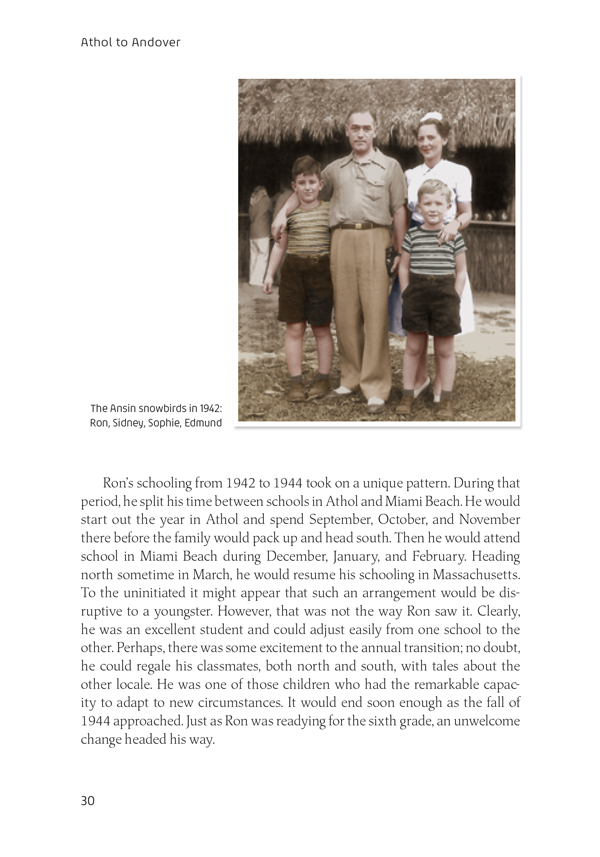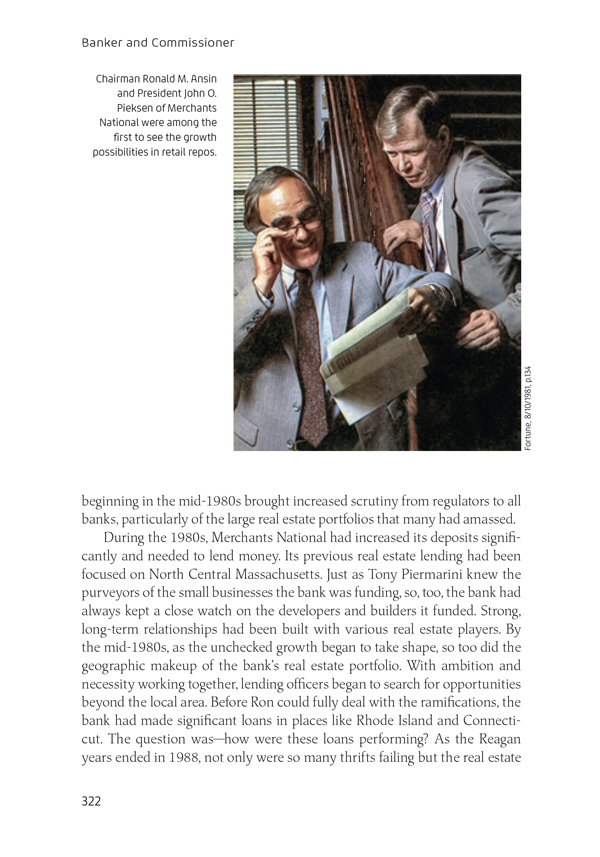One of the greatest challenges any man can face is following a successful father. The situation is further magnified when following a successful father into the family business. The dangers of nepotism and certainly of comparison are never far from the surface. Ron thought about his own experiences when his son Ken first started to work in the factory during summer vacation. Ron told him, “Ken, being the boss’s son is an easy way to get a job, but a hard way to gain the respect of your coworkers.” The solution was, of course, to earn the respect of everyone that one has contact with. That is done, Ron explained to his son, by being “the first to get there and the last to leave, and working harder than everyone else.”
Hard work was something that Ron had learned early on from the example his father set. He recalled a conversation with his mother during the summer of 1956, which he had spent working for his dad. Watching his father work every day, he asked his mother why he worked so hard. She brushed him off, calling it a foolish question. The next day in the car there was silence when suddenly Sidney Ansin broke it. “I understand you asked Mother why I work so hard.” Ron felt like hiding under the seat. Instead, he was in for a surprise. In a moment of self-reflection, his dad told him, “I know Mother said it was a foolish question, but I don’t think it’s foolish at all. In fact, I think you are entitled to an answer. Here it is. Each of us is given a certain amount of energy. The question is: how do we use it? Some people worry it away. Some people work hard. Some get somewhere and some don’t. I prefer to use my energy constructively to try and do some good.”
For a man who was not philosophical, this was a sterling piece of philosophy. And while it would take Ron years to fully grasp what his father was saying, it clearly served as a guide. To do good in business and to do good in the world required energy. Very few of us have an unlimited supply.




